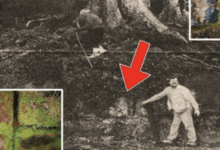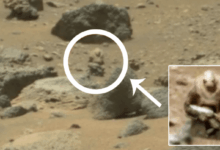The Terrifying Prophecy Left by Hawking at the End of His Life: Is It Coming True?
The Terrifying Prophecy Left by Hawking at the End of His Life: Is It Coming True?
Stephen Hawking, the renowned British physicist, passed away on March 14, 2018, at his home in Cambridge at the age of 76. He was hailed as a resilient fighter, overcoming his illness to continue his research and teaching until the final years of his life. A quote from Shakespeare’s Hamlet, “Though you imprison me in a nutshell, I will count myself a king of infinite space,” seems to perfectly capture Hawking, who devoted his life to exploring the universe and its mysterious phenomena.
Despite being diagnosed with ALS (amyotrophic lateral sclerosis) at a young age, Stephen Hawking persistently pursued his scientific career, becoming one of the most prominent names in theoretical physics. He stated that the universe did not require prayer to begin, and that no one created the universe or controls our fate. Hawking’s atheism reflected his belief in knowledge and science, where all theories must be grounded in empirical evidence rather than metaphysical speculation.
A remarkable aspect of Hawking’s life is the incredible coincidence with Galileo Galilei. Stephen Hawking was born on January 8, 1942, exactly 300 years after Galileo passed away on January 8, 1642. Both of these great scientists made indispensable contributions to the development of physics.
Hawking’s parents, Frank and Isabel Hawking, were intellectuals with strong educational backgrounds. From an early age, Stephen was raised in an environment rich in intellectual debate, where the pursuit of knowledge and understanding took precedence over all else. He attended the University of Oxford, where, although not the top student, he stood out for his sharp analytical skills and creativity in research.
However, fate tested Hawking when he was diagnosed with ALS at the age of 21 and was given just a few years to live. Despite this, with the unwavering support of his wife Jane, Hawking defied all expectations and lived far longer than doctors had predicted. They married and had three children: Robert, Lucy, and Timothy.
Hawking was a pioneer in black hole research. He made significant discoveries in this field, particularly his theory of black hole radiation. In 1974, he published a groundbreaking theory: black holes are not entirely “black” but can emit radiation, causing them to lose mass and eventually vanish. This theory, known as Hawking radiation, was a major contribution to merging Einstein’s general theory of relativity with quantum mechanics.
In addition to black hole research, Hawking also developed the singularity theorem in collaboration with physicist Roger Penrose. This theorem demonstrated that the universe may have begun from a “singularity,” a point of infinite density of matter and energy, possibly the origin of the Big Bang. In 1965, Hawking and Penrose also clarified the process of black hole formation, further solidifying the theory of the universe’s contraction and expansion.
Beyond his physics research, Hawking also made several predictions about the future of humanity. He warned that unchecked technological development and climate change could lead to the extinction of Earth. He predicted that by 2600, Earth would become a “ball of fire” due to humanity’s excessive consumption of energy. Additionally, Hawking cautioned about the dangers of artificial intelligence (AI), stating that if left unchecked, AI could become a serious threat to humanity.
Though Hawking never received a Nobel Prize because his theories could not be experimentally verified, he is widely regarded as one of the greatest minds in the history of science. His books, such as A Brief History of Time, The Universe in a Nutshell, and My Brief History, helped popularize complex physics concepts for the general public and sold millions of copies worldwide.
Stephen Hawking’s life is a living testament to the power of will and intellect. His contributions not only changed the way we understand the universe but also helped shape humanity’s future in the vastness of space.




